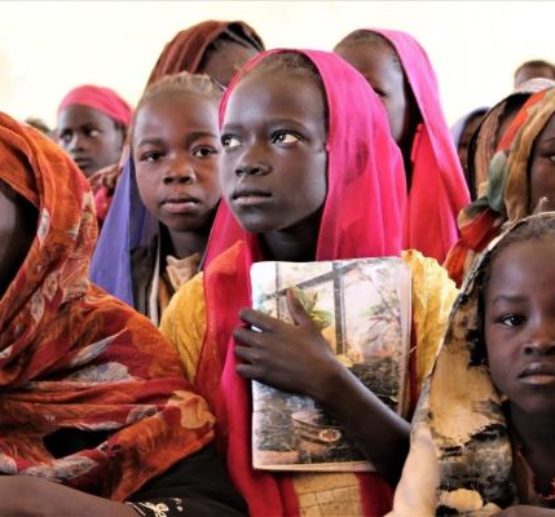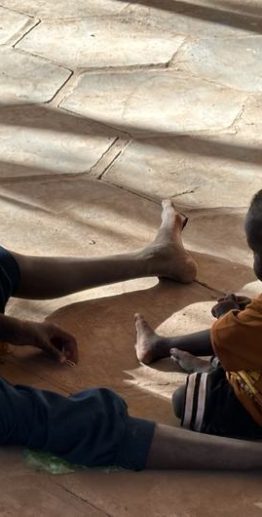July 28, 2025
Genocide in Sudan: Civilian Attacks, Communication Restrictions, and Humanitarian Collapse
Since early July, the people of Sudan have faced a devastating surge in targeted attacks, systemic repression, and worsening humanitarian conditions. Drone strikes on markets, the demolition of places of worship, a fast-moving cholera outbreak, and new restrictions on communication have contributed to a catastrophic new wave of violence, fear, and isolation. Women protestors are being arrested, famine is spreading, and displaced families continue to pour into overcrowded camps. What is unfolding in Sudan is not just a conflict – it is genocide in real time, marked by mass displacement, starvation, the silencing of dissent, and the deliberate targeting of vulnerable populations. With every passing day, the humanitarian crisis deepens, and the international community’s inaction becomes more damning. DWAG calls for urgent and coordinated global action to protect civilians, restore aid access, and hold perpetrators accountable.
Pattern of Abuse and Atrocities
In July, the National Security Service demolished the Sudanese Pentecostal Church in Haj Youssef, Khartoum. Observers say that this incident is similar to that of the former regime, which prevented the construction of new churches. This comes in the context of the resurgent influence of entities linked to the Islamist movement, and indicates the continuation of discriminatory policies against religious minorities.
On July 21st, at least 4 civilians were killed and dozens injured in an Sudanese Armed Forces (SAF) drone strike on the towns of Al-Fula and Abu Zabad in West Kordofan. The drones targeted Al-Fula’s public market, a clear violation of international humanitarian law.
Silencing Sudan: Restriction of Communication and Crackdown on Peaceful Protest
On July 21st, Sudanese authorities also banned voice and video calls via WhatsApp. This decision not only impedes on the universal human right of freedom of speech, the decision it also has complex security, political, and economic consequences. The moveIt will prevent people in Sudan from organizing, communicating, and disseminating information, and which effectively silences them the people of Sudan. The decision will not only impact those people living in Sudan, but will also limit refugees who have fled Sudan from connecting to their families at home. This ban took effect Friday, July 25th.
On July 20th, more than 10 women were arrested following their participation in peaceful demonstrations to denounce the living and humanitarian conditions in Kadugli, South Kordofan. The women were protesting the authorities’ disregard for citizen demands, and demanded that aid warehouses in the city be opened (as they have been under the control of security forces and not distributing aid). These arrests are a clear violation of the right to peaceful demonstration and freedom of expression. The city of Kadugli is slipping into famine, and humanitarian disaster is imminent. Meanwhile, an unprecedented security clampdown is happening and activists are being targeted amidst surveillance increases. This incident highlights the ongoing struggle of women amid the spread of hate speech and misinformation around women and particularly women activists. There has been an increase in intense polarization and mobilization against political opponents. Women are being marginalized socially and politically and threaten their personal safety. Now, with the ban of video calls via WhatsApp, women are even more at risk.
The Growing IDP Crisis
Over the past month, nearly 8,000 internally displaced persons (IDPs) from North Darfur have arrived in Dabba, Northern State. This influx is putting pressure on already limited resources, impacting access to shelter, clean water, food, and healthcare. The humanitarian crisis is worsening every day, especially in IDP camps, due to a severe shortage of basic services.
On July 20th, Sudanese Doctors Network confirmed 1,331 cases of cholera in just one week in Tawila, North Darfur. Tawila is now “home” to many IDPs from El Fasher, after the siege led by Rapid Support Forces (RSF). This rapid outbreak of a preventable disease, is a clear indication of the collapsed health system and the lack of clean water. Urgent action must be taken to limit the spread of cholera and save lives.
Starvation as a Weapon: Siege and Famine in El Fasher
On July 23rd, the Minister of Health and Social Welfare in the Darfur Regional Government revealed that the price of a bag of corn in El Fasher is now equivalent to $1,000. This is the latest in the exorbitant rise in prices of basic necessities due to the siege by the RSF. The minister, in his statement, also accused the RSF of using starvation tactics to empty the city of civilians in order to control it. This is catastrophic for the people who used to call El Fasher home, and the deliberate tactic of starvingation of civilians is a flagrant violation of international humanitarian law.
DWAG’s Urgent Demands to the International Community
- Authorize urgent and unimpeded access to humanitarian aid for all in need across Sudan;
- Swiftly authorize and deploy civilian protection forces to protect the innocent Sudanese people, particularly in Darfur;
- Press the warring parties to stop the torture, murder, rape, and starvation of civilians as a strategy of war;
- Demand that the warring parties to immediately cease all attacks and strictly adhere to a permanent, verifiable ceasefire;
- Impose criminal and financial accountability for all individuals and states complicit in committing past and present genocide and war crimes in Sudan;
- (U.S., UNSC, and allies) Hold the regional and international enablers supplying weapons to the warring parties in Sudan accountable;
- (US and allies) Cmust cease the selling of arms to the UAE and prevent genocide in Sudan.
As this genocide intensifies, we issue this urgent plea to the global community: Act now! The people of Darfur and Sudan at large are facing mass killings, forced starvation, and targeted ethnic violence at the hands of armed actors who continue to operate without consequence. We must raise our voices, demand accountability, and call on world leaders to protect civilians and support the Sudanese people in their fight for survival, safety, and peace.
Please join our Stand with Sudan campaign to take action, support the life saving effort and rally others to be a voice for the people of Sudan. The time to act is now.
With our collective effort we can save lives, compel our leaders to act and hold those responsible accountable.
With Gratitude,
Niemat Ahmadi,
DWAG President
Latest Features and News
Latest Headlines
Sudanese seek refuge underground in besieged Darfur city
March 15 - 2025
Sudan facing ‘the abyss’ unless war ends as…
March 13 - 2025
+ Read MoreLatest Headlines
Sudan war: Children facing ‘unimaginable suffering’, warns UNICEF…
March 13 - 2025
MSF pulls out of famine-stricken camp in Sudan’s…
February 24 - 2025
+ Read More


